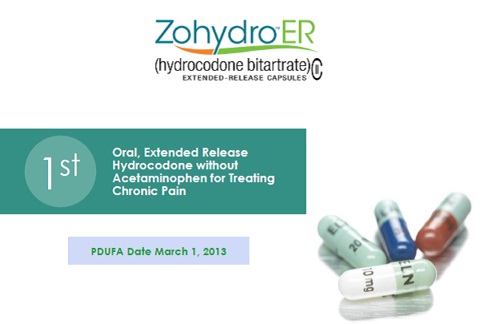Zohydro "was first developed in 2002 by Elan, which merged with Alkermes, and Zogenix acquired the U.S. rights in November 2007."* Elan's parent company Perrigo is based out of Dublin.
Given the recent surge in painkiller-related overdose deaths and increase in heroin abuse and overdose deaths — experts in the field, even doctors specializing in pain management are puzzled if not extremely concerned. I am quoting from Huffingtonpost below (see the link below):
"Concerned about FDA approval of Zohydro? You are in good company. This morning a letter signed by more than 40 organizations was sent to FDA Commissioner Hamburg, urging her to keep Zohydro off the market. The organizations include some of the most prominent addiction-treatment agencies in the country, including Hazelden, Caron, and Phoenix House. Other co-signers include CASA Columbia, the American Society of Addiction Medicine, Blue Cross Blue Shield, the consumer advocacy group Public Citizen, and dozens of community-based addiction-prevention organizations."
http://www.huffingtonpost.com/andrew-kolodny-md/zohydro-the-fdaapproved-p_b_4855964.html
BTW, Elan plans to introduce a non-crushable form in three years, which I believe has something to do with limiting generic versions being produced by other manufacturers.
Here is another block quote from Huffingtonpost:
"Second, please make your way to Washington, D.C., for the FED UP! rally on Sept. 28, 2014, where you will be joined by thousands of people who are equally fed up by the FDA's long track record of putting opioid manufacturers' interests ahead of public health."
*Read more from Journal Sentinel: http://www.jsonline.com/watchdog/watchdogreports/zohydros-maker-not-required-by-fda-to-take-abuse-deterrent-steps-b99129543z1-229528381.html#ixzz2uR0NfR1S


